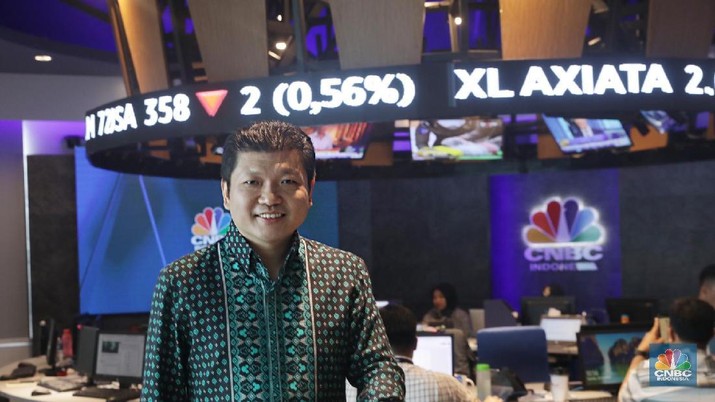
Trade War, Sritex Will Get Big Clients from the US Rp. 14 T
Jakarta, CNBC Indonesia – The continuing US-China trade war between China and Indonesian textile and textile products (TPT) companies has entered the global supply chain (potential supply chain) and has the potential Profit from excess trade war reached more than US $ 1 billion or around Rp. 14 trillion (assuming an exchange rate of Rp. 14,100 / US $).
One of the TPT companies is the issuer from Sukoharjo, Central Java, namely PT Sri Rejeki Isman Tbk (SRIL) or Sritex. Issuer management which was founded in 1966 by the late H.M. Lukminto asserted that he is increasingly accepting orders from some of the world’s big fashion brands who want to diversify their garment suppliers away from China.
SRIL had previously made clothes for several big brands including J.C. Penney Co., Guess? Inc., Walmart Inc. and other big brands like H&M
“One of the biggest players in the US wants to move [its suppliers] on a large scale. [Potential value] is almost close to US $ 1 billion,” Sritex CEO Iwan Setiawan Lukminto said in an interview reported by Bloomberg, quoted by CNBC Indonesia, Wednesday (2/10) / 2019).
However, Iwan refused to provide details considering it is still closed.
He said Indonesian textiles hoped to be able to get a blessing from the increasing trade tension between the US-China. The trade war also forced global companies to begin to focus their production outside of China, which for decades has been a prime location.
According to Iwan, currently a number of companies are also working hard to secure their supply chains from other locations such as Taiwan, Vietnam and Bangladesh to reduce tariffs on goods bound in the US, but Indonesia has so far this is still lagging behind because of bureaucracy and other obstacles, such as rigid labor laws.
Iwan said supply demand had surged since last year, after US President Donald Trump imposed higher tariffs on goods produced in China.
“That then exploded [request],” he said. “Customers are looking for who is ready for the business [the textile supplier] and who can replace China,” he said.
He said the US market now accounts for around 13.6% of Sritex exports, up about 3% a year ago. Iwan plans to increase the company’s production capacity to one fifth next year to meet rising demand.
The business potential obtained by SRIL is good news considering that Indonesia experienced a decline in exports for the 10th consecutive month in August, while the government has reduced this year’s growth forecast to 5.1% from 5.3%.
The World Bank report revealed that in 2018 out of 33 Chinese factories that were relocating out of China, as many as 23 factories were relocating to Vietnam, the rest were to Malaysia, Mexico, and others. While Indonesia was not even looked at by Chinese investors.
President Joko Widodo (Jokowi) was unable to hide his disappointment with the classic problems that Indonesia had not yet been able to resolve. The problem is investment regulation.
“After looking into more detail, if we want to move to Vietnam, it only takes 2 months to complete. We can take years. The reason is only that. Nothing else,” Jokowi said before the Ministers, in early September.
On the other hand, SRIL’s business potential is good news considering that the country’s textile industry has indeed been under pressure this year due to the influx of imports in the upstream product sector and increased competition for the export market, which has led to mass layoffs and factory closures.
The Indonesian Textile Association (API) recorded 9 textile factories closed due to competition from imported products in the period 2018-2019.
In trading session I this Wednesday, SRIL’s shares were stagnant at the level of Rp 314 / share with a market capitalization of Rp 6.42 trillion.

